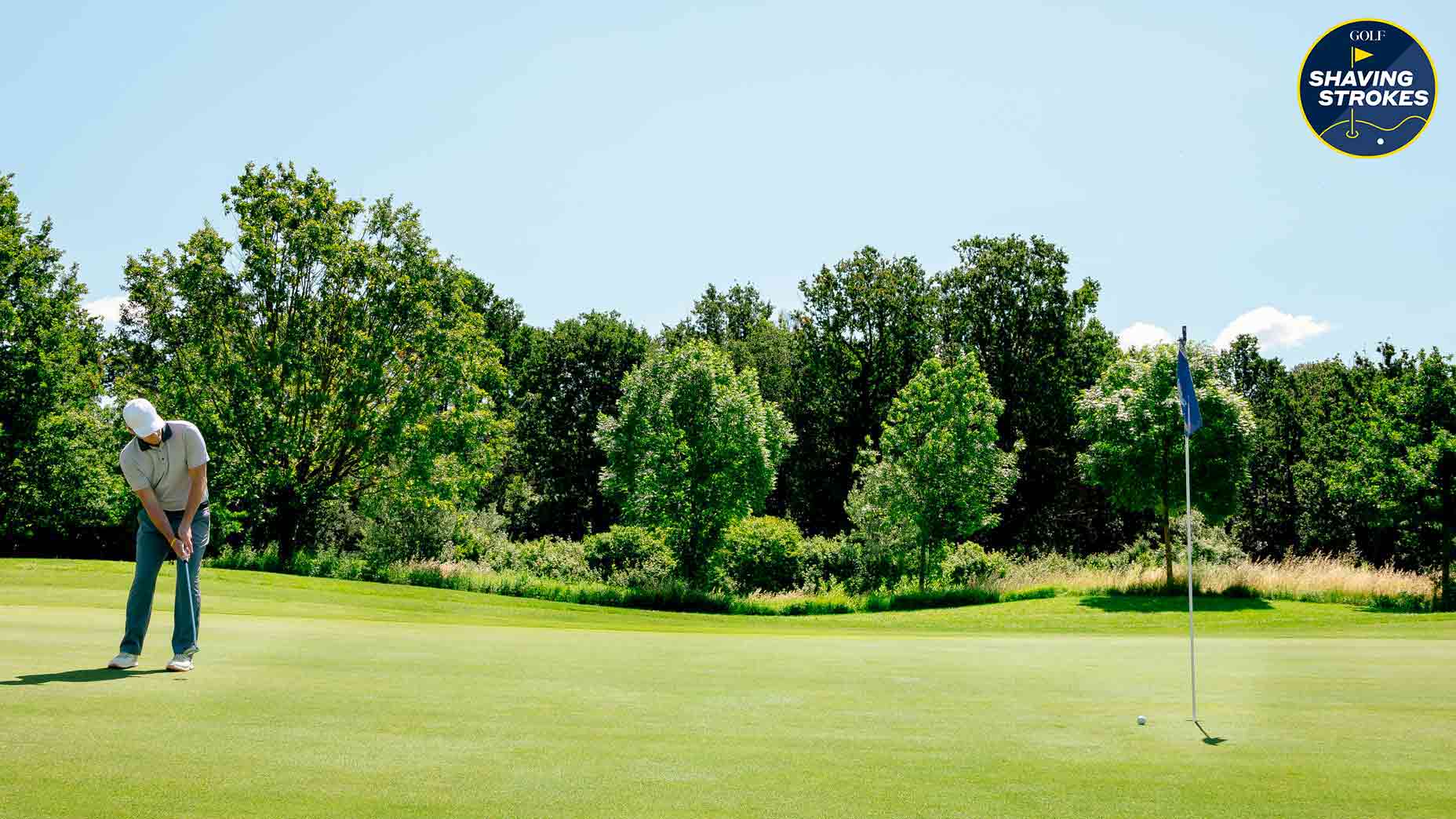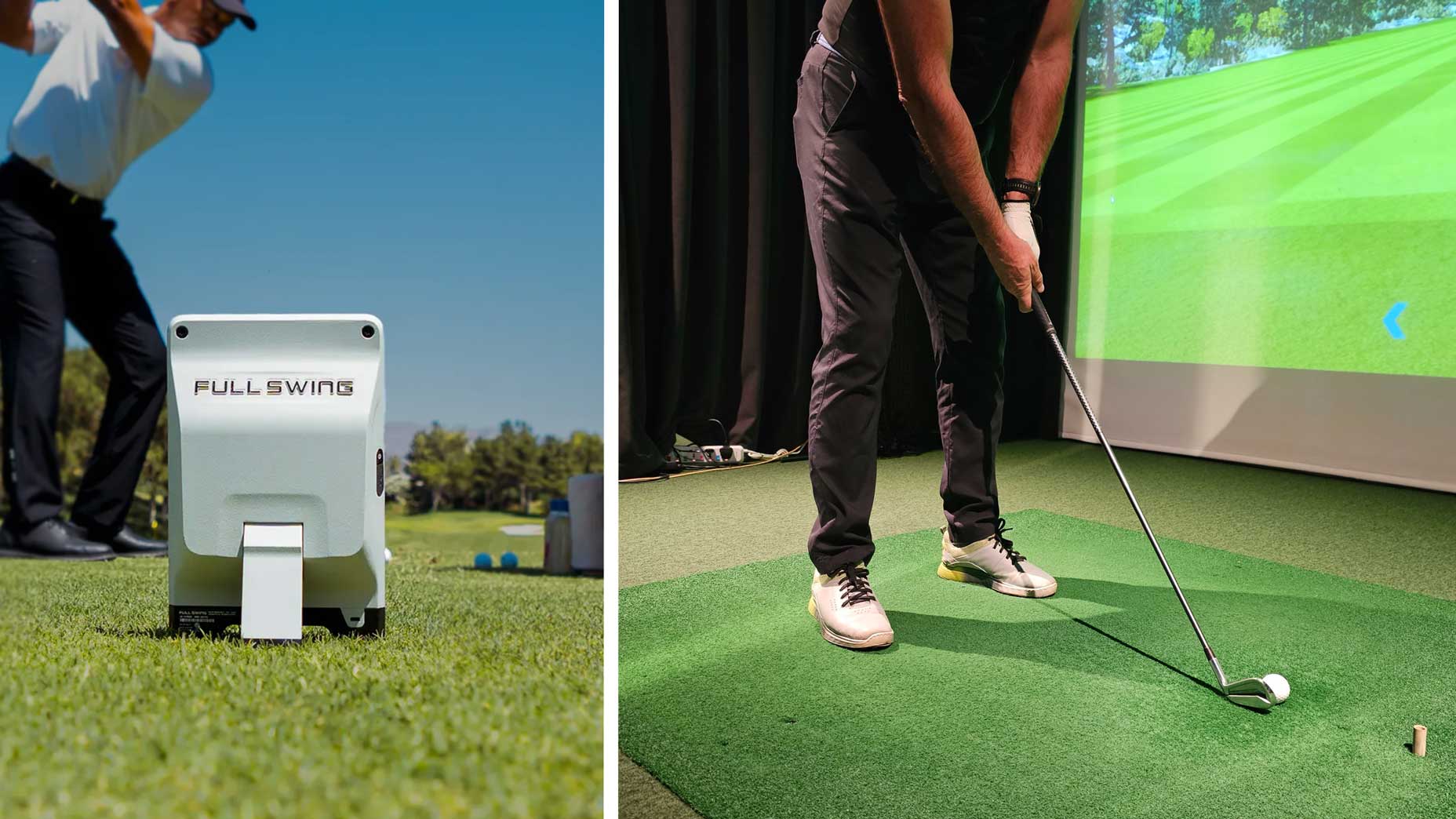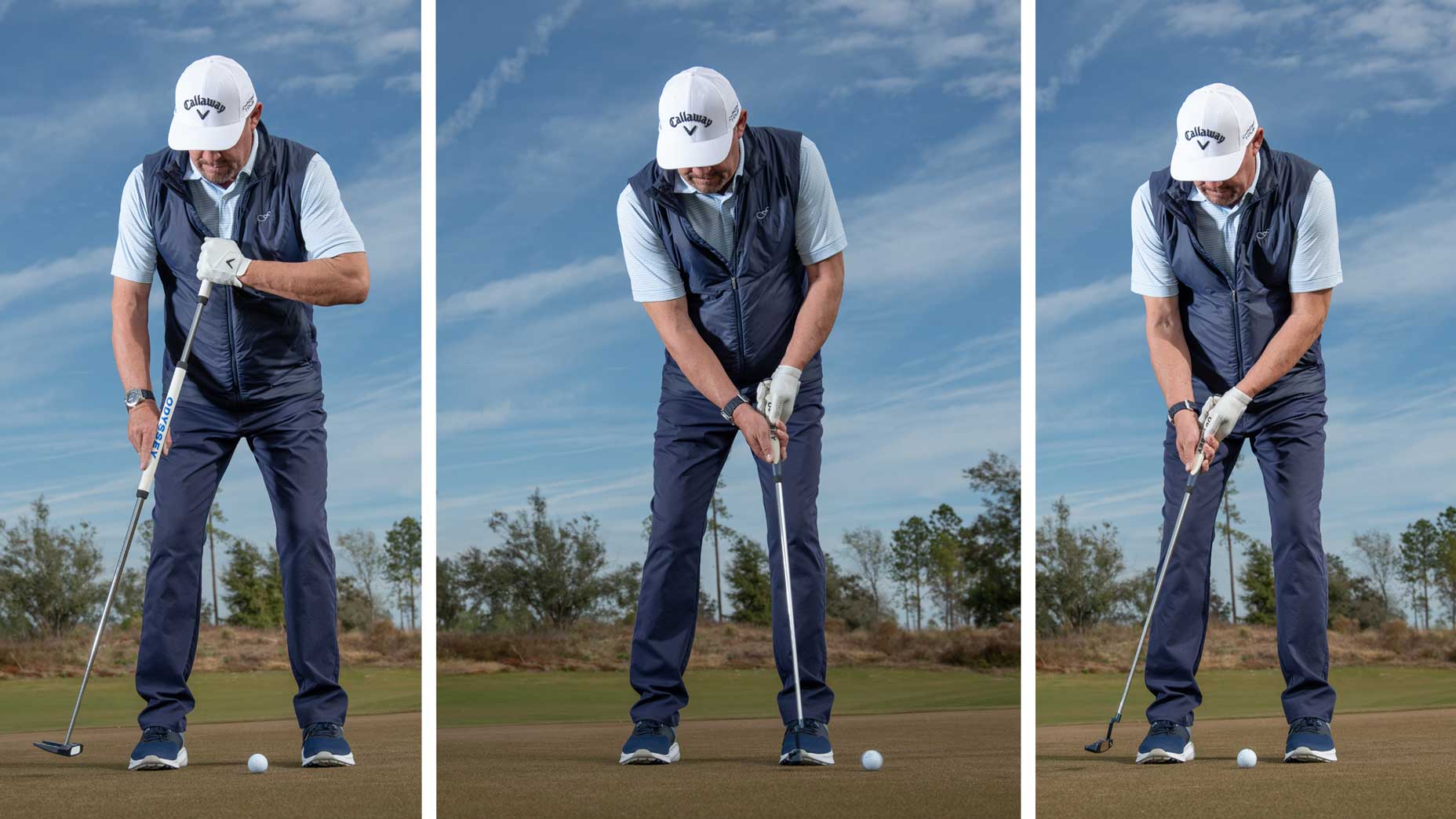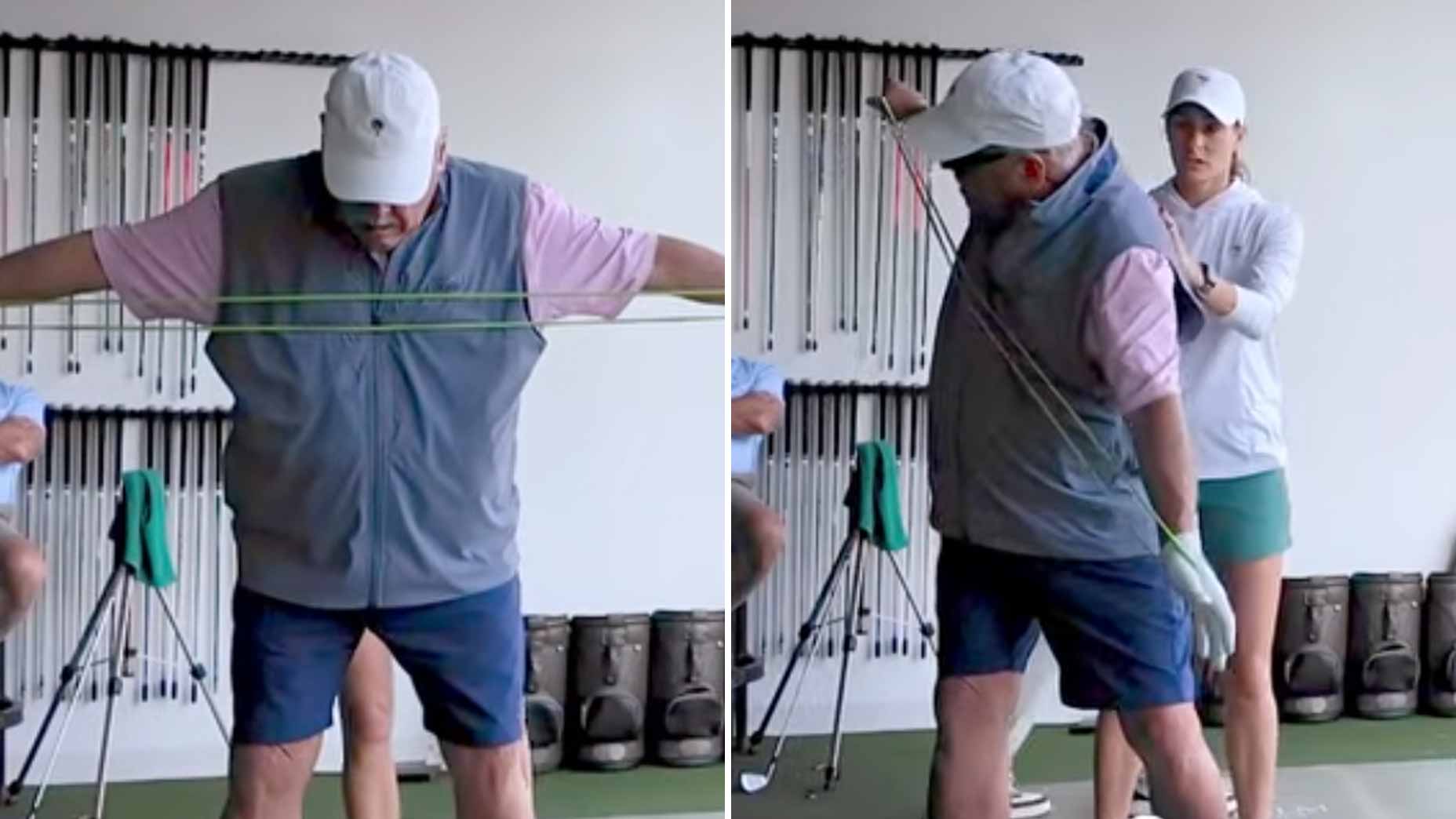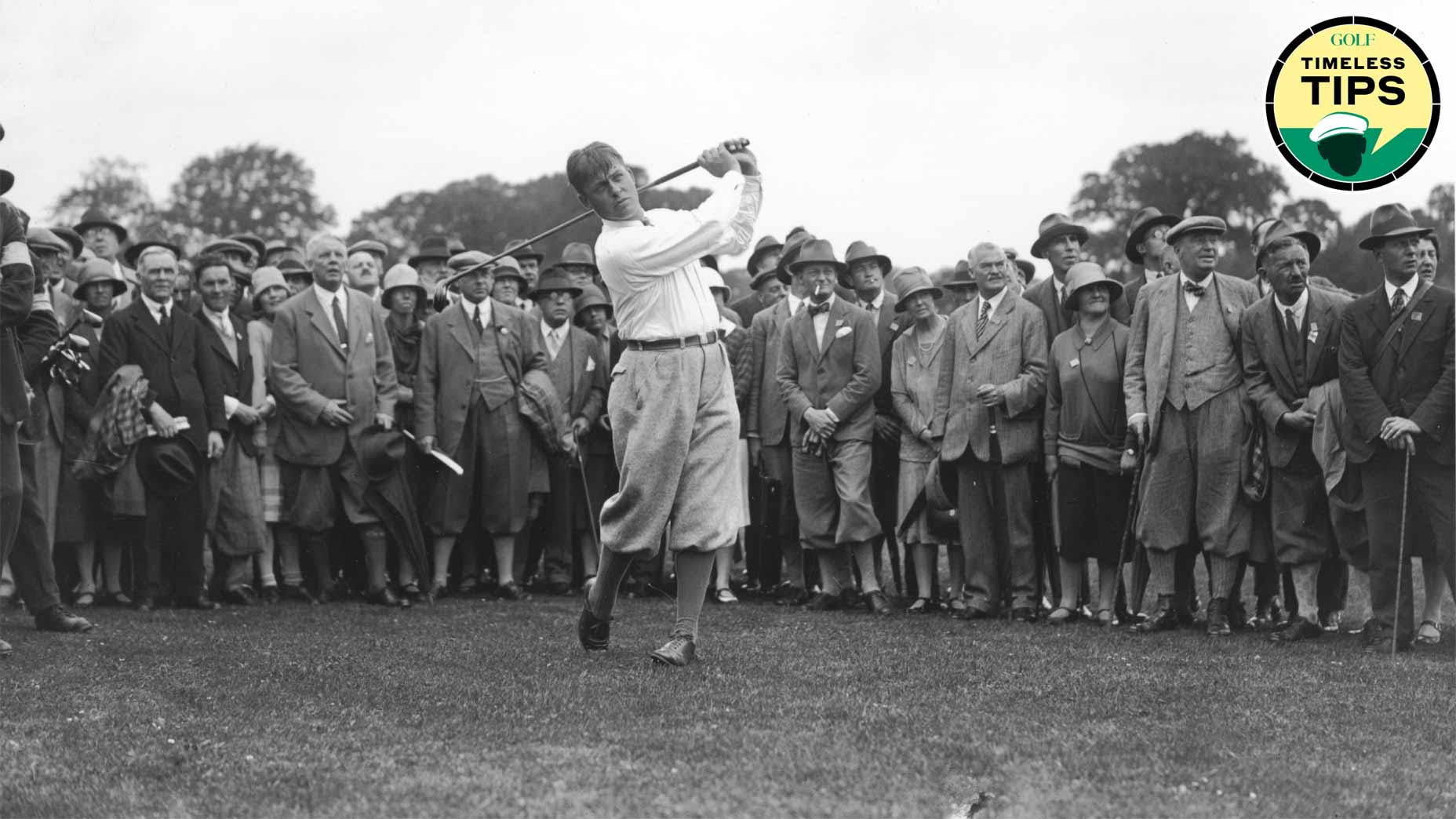Welcome to Shaving Strokes, a GOLF.com series in which we’re sharing improvements, learnings and takeaways from amateur golfers just like you — including some of the speed bumps and challenges they faced along the way.
As I’ve recently talked about a few other times, my wife, daughter and I are on a 25-day road trip across Canada to visit family and friends. Between my dad duties and being as good of a husband as I can be, I’ve been able to play just a little bit of golf.
But it’s not the type of golf many of us are probably used to, as I’ve actually been playing golf alone a lot during this trip — and my entire game has been incredible.
With the long summer nights up here in Canada, I’ve just walked onto the course around 9 p.m. to hit some balls from different spots on various holes. I even got to sneak in a quick 9 holes a couple of weeks ago, shooting 5-over! That’s by far the best I’ve played in the past few months.
During these little late-night practice holes, I’ve hit the ball pure, dialed in my course management and club selection, spoken positive things out loud to myself, tried some funky shots (like flop shots) near the green, and have taken time to read putts properly.
Then reality set in when I did get to play 18 holes with my father-in-law early last week: It was back to bogey golf for me, with a lot of the same mistakes I’ve always made (like slices, bad swing sequencing, and 3-putting).
So what gives? I tapped GOLF Teacher to Watch Dr. Alison Curdt to get some answers, and to see if playing golf alone really does bring out the best in golfers or if it’s just something that’s in our own heads. Curdt gave me five reasons why solo golf really is a healthy practice — so take a look below to see why.
Playing golf alone? Here’s why you (likely) score lower
“As a golf coach, I’ve had the privilege of observing players of all levels, from beginners to seasoned pros,” Curdt tells me. “One aspect that consistently impacts performance is the environment in which a golfer practices and plays. So while golfing with friends or in groups has its benefits, there’s a significant and often overlooked advantage to playing golf alone.”
So why does solo golf bring out the best in a player? Curdt says there are plenty of reasons — like using the course as a practice ground for advance planning, to dial in your approach shots, and to avoid distractions of playing in a group for a score.
“Playing golf alone can be a game-changer for your performance and overall enjoyment of the sport,” she adds. “Here are five reasons why hitting the course solo is a fantastic way to improve your overall game.”
1. Enhanced attention to detail
When playing golf alone, you have the opportunity to focus more intently on the finer aspects of your game. Without the distractions of conversation or the need to keep pace with others, you can take the time to observe the accuracy of your stance, grip, and swing mechanics.
For a variety of reasons, many golfers struggle with incorporating new swing changes to the course — since there are more variables to consider such as uneven lies, distance, pressure to make the right swing for scoring purposes). Having the chance to try out any swing adjustments without the pressure of having to score allows you the chance to practice in the environment you will compete in (since we don’t compete on the range!). This heightened attention to detail allows you to identify and correct subtle flaws in your technique that might otherwise go unnoticed.
When playing with others, if we feel rushed or panicked, we may skip some steps that are vital to quality ball-striking. When playing alone, there are less distractions to consider, so you get to change your focus and identify your process.
2. Reduced performance anxiety
Having some sort of performance anxiety is a common issue among golfers, especially when playing with others. The pressure to perform well in front of peers can lead to tension and really negatively affect your swing. Many golfers are distracted by thoughts of what others might think of their swing, feeling judged for a poorly hit shot, or simply have a subconscious layer of trying to impress others.
But playing golf alone removes this external pressure, and allows you to relax and play more naturally since there aren’t any other eyes on you. When you’re not worried about impressing others, keeping up, or hitting a difficult shot over the water on a tough par-3, you can focus solely on your own game — which often results in a better and more enjoyable experience.
Reducing any external stressors decreases your nervous system activation, so more energy can go into your strategy and plans for executing a desired shot.
3. Improved concentration
Concentration is crucial in golf, and playing alone provides a serene environment that’s free from interruptions. The solitude allows you to immerse yourself fully in each shot — from the initial strategy development, to setup, execution, and finish.
With fewer distractions, you can develop a deeper sense of mindfulness, paying closer attention to your breathing, your body’s movements, and the club’s interaction with the ball. You can also take the time to complete a pre-shot routine, and include imagery of how you’d like the shot to be executed. Additionally, you can build in a post-shot routine, which allows you the opportunity to reflect on any changes you would have liked to make after hitting a shot.
We can easily be distracted by the experience of an emotional moment, so allowing yourself the chance to reflect on what happened, process it, and move on to the next shot is a key part in improving. This heightened concentration and awareness helps in making more consistent and precise shots.
4. Opportunities for experimentation
Have you ever felt like you wanted to retake a shot? Of course you have, because every golfer has experienced this before. So when playing golf alone, it’s the perfect time to experiment with a variety of different shots.
For example, if you always hit driver off a certain tee box, but find yourself in trouble more times than not, you might club down to a hybrid or even a low-iron when there’s no pressure to perform. And when you get up around the green, drop an extra ball or two to work on a bump and run, experimenting with different club options and shot types.
When you have this alone time on the course, you can get a lot of work done on improving options within your game — rather than applying the same strategy that may often get you into trouble.
5. Enhanced mental game
Sure, golf is a physical game, but we all know just how important the mental side of it is in order to see consistent success. When playing golf alone, it gives you the opportunity to develop your mental resilience and build your toolbox of coping tools — whether that’s after a bad shot or even following a good one. You’ll feel two different emotions for each, so channel your energy regardless of outcome.
Go ahead and congratulate or validate your achievements out loud on the course after a great shot. Then make sure you maintain that confidence and try to carry it over to the course while playing with others. On the contrary, how can you maintain a balanced mindset after a bad shot? While on the course alone, it’s the ideal time to develop that method for yourself.
Using self-talk is a great awareness exercise, and brings light to how your brain naturally reacts after a good or bad outcome. By recognizing this, you can work on controlling it alone at first, then try to replicate it on the course while playing with others.
As you can see from the above, playing golf alone is a fantastic way to find yourself as a golfer, both mentally and physically. And while social rounds with friends has its benefits, there’s just something profoundly beneficial about taking on the course alone.
So the next time you’re looking for a reset or want to try incorporating some new techniques into your swing, I suggest teeing it up solo — you might be surprised with the gains you can make when it’s just you and the course.

Voice Caddie VC4 Golf GPS
View Product
